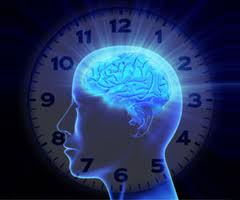Article written by Guest Writer Mel Coles
Most people are vaguely aware of the concept of the ‘biological clock’. In more scientific terms, the ‘biological clock’ is referred to as the ‘circadian rhythms’ of the body – the cycles of sleeping, waking, eating, and fasting which keep our bodies and minds running to a certain equilibrium. Your circadian rhythms do their work subtly, but their effect is powerful. It can take a while for many of us to accept that things which seem as existential as our moods and our impulses can be governed by things as simple as the regularity of our meals, but this is nonetheless often the case. Everyone’s ‘biological clock’ is different – some are much more flexible than others in their rhythms, while some can bring the body’s mental armour crashing down at the slightest hint of disruption. However, one thing is perfectly clear: messing with your biological clock can have serious consequences – and few things mess with it more than substance abuse.
Circadian Rhythms And Mood
Circadian rhythms are incredibly complex. There’s a lot more to them than simply feeling hungry or sleepy at prescribed times. They frequently do their work through the release of neurotransmitters and hormones, which manifest in feelings of sleepiness, wakefulness, hunger and so forth. Many of these neurotransmitters are also associated with mood. Serotonin, for example, is released when natural light filters through the eyelids and the circadian rhythms encourage the body to wake up. Serotonin is not only associated with natural light, however, but with mood – it is often used as a chemical treatment for those with depression and other mood disorders. Those with disordered sleep patterns frequently suffer from poor moods, as their circadian rhythms are suppressing serotonin release in their confusion. Similarly, the circadian hormones affecting hunger can also make you ‘hungry’ – if your body is accustomed to getting fed at a certain time each day, you’ll quickly find your fuse shortening considerably when you don’t give it the food it desires.
Chemical Clockstopping
So what has this to do with addiction? Well, for a start, addicts are often ‘self-medicating’ for existential problems within their lives – of which problems with mood may well play a significant part. Disruption to the circadian rhythms is likely to worsen these issues, which will in turn drive the addiction deeper. Perhaps more worrying, however, is the fact that this is a self-perpetuating cycle. Alcohol and drugs cause significant disruption to the biological clock in the first place. Things like cocaine will keep you awake and eliminate your appetite, while heroin and alcohol will both make you sleepy at unnatural times and keep you awake when it is more beneficial for your body to sleep. Hunger is also artificially induced or suppressed by many drugs. This throws the circadian rhythms into abject confusion, worsening the addict’s mood, which encourages them to engage in more self-medication, and so it cycles on. After a while, they biological clock may give up entirely, and the body will begin to rely upon substances to regulate its rhythms.
Painful Recovery
This is a significant but oft-overlooked factor within an addict’s recovery. The biological clock can be trained and altered, and it can recover from even major setbacks. However, as anyone who has ever suffered from jet-lag knows, the process is rarely pleasant. A recovering addict may suffer from extreme fluctuations in sleepiness, hunger, and mood while their body clock attempts to reassert itself and re-learn its old duties. If you wish to know more about how the body clock can affect an addict’s recovery, read this article.
![Chemical Clockwork – Circadian Rhythms And Addiction Article written by Guest Writer Mel Coles Most people are vaguely aware of the concept of the ‘biological clock’. In more scientific terms, the ‘biological clock’ […]](/wp-content/uploads/2015/10/8384110298_b0bc7d6435_o-620x300.jpg)
